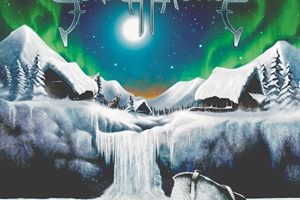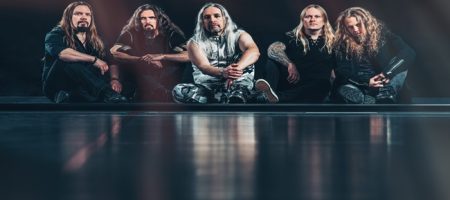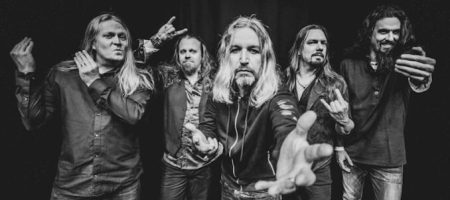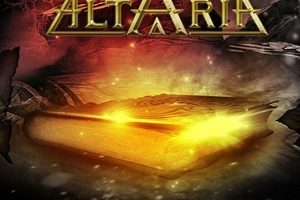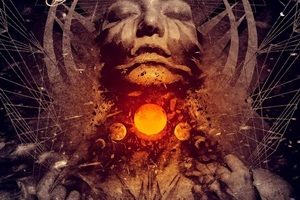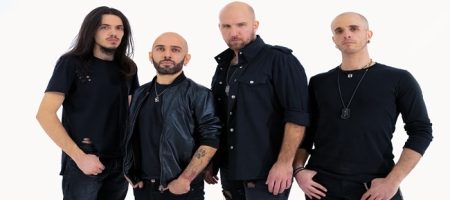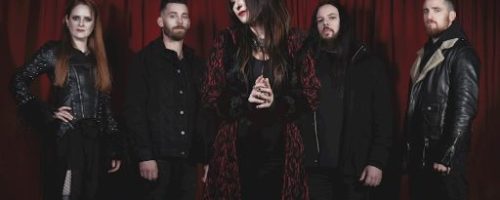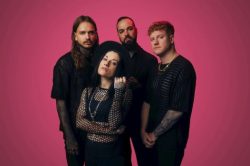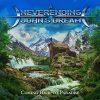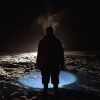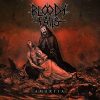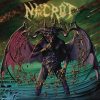Sonata Arctica – Wolves Just Like Us
Sunday, 2nd March 2014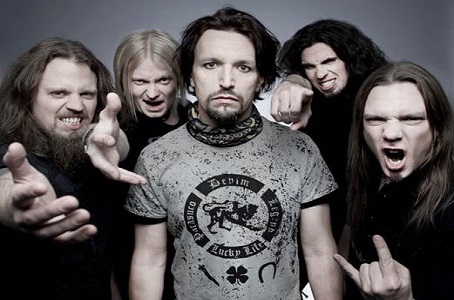
Despite constant, if not annoying pleas, Finnish melodic power metal vanguards Sonata Arctica continually resisted the urge to revisit the zippy, saccharine, and high-wire sound heard on their first three albums. Citing the usual norms of artistic integrity, along with the desire to not repeat oneself, the band – specifically singer/songwriter Tony Kakko – forged ahead in a progressive, occasionally rock and mid-tempo direction, one that came close to fully alienating their long-time fanbase in recent years. As it came to be, SA pushed it as far as they could go with 2012’s Stones Grow Her Name, only to come to conclusion upon their 15th anniversary that maybe happy-metal land is where they belong.
Their new Pariah’s Child does indeed uphold a lot of the traits heard on 1999’s Ecliptica or its 2001 follow-up Silence, purveying the carefree, peppy, but oh-so-hooky style of melodic metal the band came to master. Granted, not many of these songs are on par with the band’s earlier works, yet cuts such as “Running Lights,” the excellent “Cloud Factory,” and “X Marks the Spot” should satiate those who have longed for the band to make a retreat to days of yore. And thankfully, a lot of this stuff doesn’t feel as rehashed as one would think – Kakko and crew are still pushing ahead, albeit not on the same trajectory as before.
The always polite and well-spoken Kakko phoned DR to discuss Pariah’s Child, along with some changes in the band’s lineup, as well as what it’s like to be a public figure in Finland. Ever the professional, Kakko phoned right on the proposed 3:30 PM EST dot, and off we went…
Dead Rhetoric: You always stated in the past that going back to speedy and/or up-tempo songs would be the “easy way out.” Why do it now for Pariah’s Child? Was it easy to go back and do songs like this again?
Tony Kakko: Easier than I thought, actually. I really thought at the time that we’re never going back. I was so fed up with those double-kick stuff, on the first three albums. Reckoning Night, I consider to be in a different vein, going in a slightly different direction. I was sure that nothing that was ever going to happen again, but you never know, things change. Last summer, we had to start preparing ourselves for this 15th anniversary tour, and we’ve played about a dozen shows in Finland, and that meant we had to listen to all of the old albums, and there were songs I had not heard in like, ten years. I thought that it would be a nightmare to go back there, but I enjoyed myself; it was a lot of fun…maybe time heals.
It just felt nice to write something again like Winterheart’s Guild or Reckoning Night-style and the result of that was the “Wolves Die Young,” the first single. The whole band fell in love with the song and it felt like an instant hit within the band. We realized that this would pave the road for the rest of the album; this is the direction we’re going and I should try writing more songs in that style for the album.
Dead Rhetoric: To be the devil’s advocate: People will say this is a cop-out, that you had this proven, successful formula you had on the first three albums, then you went away from it, now you’re coming back.
Kakko: [laughs] I wouldn’t call this an “easy way out,” this is not repeating ourselves. Pariah’s Child is a slice of everything we’ve done in the past, something from every album. I like to think that in some alternative universe or reality, this could have been the album we released after Reckoning Night had things been different in the band, if I had motivation and artistic will to do so. But I’m pretty happy we went in a different direction. We learned a lot of new stuff on the other three albums, it was fantastic. Now I think it’s time to do something different again and go back to that old familiar stuff and celebrate 15 years of Sonata Arctica. I think if we would have gone further with the style on Stones Grow Her Name, that would have been the doom of the band. On the tour with the album, those songs, although they are a lot of fun to do live, it’s too slow, not Sonata Arctica, we cannot go further in that direction. We have to be metal and do something we’re good at. [laughs]
Dead Rhetoric: Unia is still a pretty important album for the context of the band – you couldn’t do another album like the previous two. Reflecting back, how important is the album to you today?
Kakko: I called that really, for a very long time, my favorite Sonata Arctica album. Even after we released The Days of Greys, I told people that was the best Sonata Arctica album to date, even though it would be cool to say that the newest is. I really do feel Pariah’s Child might be the best album, at least in the top two. At the moment I do feel that way – it’s a good feeling, especially when you’ve been writing some not-as-good albums after Unia, even though I love all the songs that came after Unia, they’re really goddamn good. Unia had a really special place in my heart, it was a unique artistic place for me – I reinvented myself as a songwriter and found a new will to continue this career because I was ready to quit after Reckoning Night. It was a nightmare of a tour; it was the first really long tour we had. In comparison to The Winteheart’s Guild tour, where we had 45, for this, we had over 160. That almost destroyed the band…with Jani [Liimatainen, guitars] leaving and we had all sorts of problems, but it was a moment of change, and Unia was the result of all that.
Dead Rhetoric: You have to do those type of albums to stay artistically satisfied, or things would get stale. But, I had no idea things were that bad around Reckoning Night.
Kakko: Yeah, that was a really hard time, but ending and quitting Sonata Arctica was not an option – it means too much. But something had to change and we kept it that way for a long time, and I’m pretty happy we changed the logo for Unia and kept it for the next three albums, because now we have that metal edge type of thing, it serves a purpose and tells people we’re back on track and it’s going to be enjoyable for people to see what that road has to offer for us in the future. It was an adventure to go on that kind of way; we’ve learned a lot. I can continue searching that road on my solo album someday, but we have to keep Sonata Arctica, Sonata Arctica.
Pages: 1 2











